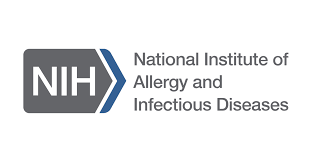
Applications for the NIH-funded program are now open to US citizens, US non-citizen nationals, and lawful permanent residents who have completed at least 1 year in their master’s or pre-dissertation doctoral programs in the physical/quantitative sciences. This is an 11-week, full-time intensive course-based training program to work alongside established clinical scientists on one or more Big Data Health-related studies. In addition to formal classroom training (at no cost to the student), each student will receive accommodations and a stipend to be involved in a specific research project, actively participating in a hands-on manner in a research laboratory alongside a diverse array of well-known established researchers currently conducting studies related to Big Data Health Science. Once the summer training period has ended, the research mentorship will continue for a full year, in which time trainees and their mentors will work on publishing their research and presenting at the BDHSC’s annual conference with funding support provided by the T35 program.
The program will provide the following support to trainees during the training period:
- A stipend up to $2,068 for each of the three months that they participate in the program (up to $6,204 total)
- Support to travel to campus (See Travel Reimbursement Policy linked here)
- Up to $1,000 of travel support per trainee to present their research at a national or local conference
- Support for health insurance during the training period (if uninsured), tuition, and subject fees
- Housing will be provided during the training period
- Funding to publish a manuscript
- Up to $200 funding for necessary computing software
- Invitation to present on your experience to NIH program officers at our annual Big Data Health Science Conference (in early February)
- Matched with a mentor
- Participation in a funded Big Data research project
- The opportunity to network with influential people in Big Data Science
The future of health care will be shaped by the role big data plays in improving patient outcomes. Currently, the potential of BDS in healthcare research remains limited due to various structural or methodological challenges in data acquisition, analysis, and interpretation. Central to addressing these challenges is the training of a critical mass of researchers with the adequate knowledge, competencies, and skills needed to unlock important answers from Big Data to better understand, treat, and ultimately prevent infectious diseases and their related comorbidities. The ultimate goal of this program is to cultivate a thriving and talented pipeline of next generation scientists, engaging current students early and providing new and innovative training opportunities to generate interest in the biomedical, social and behavioral, and clinical sciences.
The 2024 summer activities included:
- Vector specimen collection at Sesqui state park with Melissa Nolan’s Laboratory of Vector-borne and Zoonotic Diseases
- Machine Learning in Python workshop series and Data Analytics in R workshop series hosted by the South Carolina IDeA Networks of Biomedical Research Excellence (SC INBRE)
- Tour of the South Carolina Department of Public Health (formerly the SC Department of Health and Environmental Control)
- Tour of the South Carolina office of Revenue and Fiscal Affairs (RFA)
- Virtual tour of the Siemens Healthineers Innovation Think Tank (ITT)
The 2024 Cohort consisted of 5 students from diverse backgrounds in the sciences, including: Joshua Cook, a Master’s student in Data Science at the University of West Florida, Lauren Holian, a PhD student in Infectious Disease Ecology at the University of South Carolina, Grant Hunter, a PhD student in Applied Mathematics at the University of Alabama, Gulnar Ibramsha, a Master’s student in Mathematics at the University of South Carolina, Brenda Macias, a Master’s student in Applied Mathematics at Tufts University. Here are some impressions that students from our 2024 cohort had of the program:
The NIH T35 program at the University of South Carolina has played an instrumental role in my development as a future physician-scientist, offering me direct mentorship under experienced public health leaders and big data analysts. I will carry the skills learned here with me for the rest of my career, and I am excited to continue working with my mentors to publish our findings!
The T35 program gave me the opportunity to integrate my research interests with public health and included me in an engaging and supportive community of researchers.
This program helped me to be certain of my future with the health sciences as a mathematician.
Learn and Conquer.
The T35 staff will provide you with everything you need to be successful in the program!
A Special Thanks to Our Funder
The BDHSC would like to thank the National Institute for Allergy and Infectious Diseases for making this program possible through their T35 grant award.

